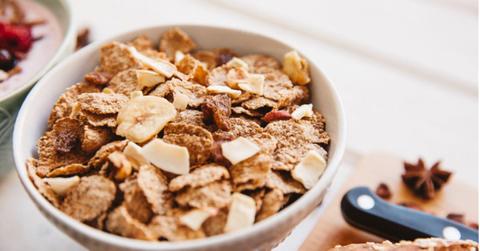 NEWS
NEWSManaging Gastric Issues: Your Guide to Eating Right

June 25 2023, Published 4:09 p.m. ET
Bloating, acid reflux, and abdominal pain are just a few of the symptoms of gastric issues, which can range from being a temporary annoyance to a persistent condition. However, you can do a lot to alleviate these problems and improve your health by selecting your food items with care.
Understanding Gastric Issues
It's important to get a firm grasp on the nature of gastric problems before diving into the specifics of the recommended diet. Gastritis, acid reflux, and irritable bowel syndrome are just some of the digestive system-related conditions that fall under this umbrella.
Eat Smart: Foods to Include
Hgh-Fiber Foods
Constipation is a common source of gastrointestinal distress, and fiber is well-known to alleviate this problem. If you want to get enough fiber in your diet, you should eat more whole grains, vegetables, fruits, and legumes. If you're looking for a healthy and easy way to increase your fiber intake, consider stocking your pantry with a 1 kg jar of peanut butter. Moreover, it is simple to incorporate peanut butter into anyone's diet because of the pocket-friendly peanut butter 1 kg price and easy availability.
Probiotics
Probiotics are "good bacteria" that support digestive health and a balanced microbiome in the intestines. These probiotics are beneficial and can be found in foods like yogurt, kefir, sauerkraut, and kombucha.
Apple Cider Vinegar
Apple cider vinegar, long used as a home remedy, has been found to be helpful for digestive problems. For better digestion and less acid reflux, try diluting a tablespoon in water and drinking it before each meal.
Be Wary: Foods to Avoid
Spicy Foods
Spicy foods are known to irritate the stomach lining and bring on stomach problems. If you suffer from acid reflux or gastritis, cutting back on your consumption of spicy foods is recommended.
Fatty Foods
Foods that are high in fat, such as fried foods, high-fat dairy, and fatty meats, can cause discomfort, bloating, and acid reflux by delaying stomach emptying.
Want OK! each day? Sign up here!
Alcohol and Caffeine
Caffeine and alcohol both inhibit the stomach's natural production of acid, which can irritate the lining of the stomach and cause gastritis and other problems. Reduce your consumption or switch to a caffeine-free option.
Gas-Producing Foods
Some foods are notorious gas-producers that can leave you feeling puffy and uncomfortable. To name a few: beans, lentils, broccoli, cabbage, onions, and soda.
Gastric-Friendly Meal Ideas
Making gut-healthy meals doesn't have to be a hassle. Listed below are some easy meal plans:
●A bowl of high-fiber cereal with a dollop of probiotic-rich yogurt and some fresh fruits or upma, and wholesome khichdi for breakfast.
●A variety of half cooked vegetables served with an apple cider vinegar dressing. Also, you can have the best comfort food in the world, daal chawal with salad or curd rice for lunch.
●Dinner can be quinoa with steamed vegetables or khichdi, and curry.
●A handful of nuts or a protein shake are both good options. To keep your stomach happy while nourishing your body, choose a protein shake made from easily digestible plant-based ingredients.
Conclusion
Keep in mind that you can't apply the same strategy to everyone because everyone is different. Pay attention to how your body reacts to certain foods and make adjustments as needed. If you're having ongoing stomach trouble, it's best to see a doctor. Managing gastric issues can be greatly eased by making healthy food selections and adopting a balanced lifestyle.

